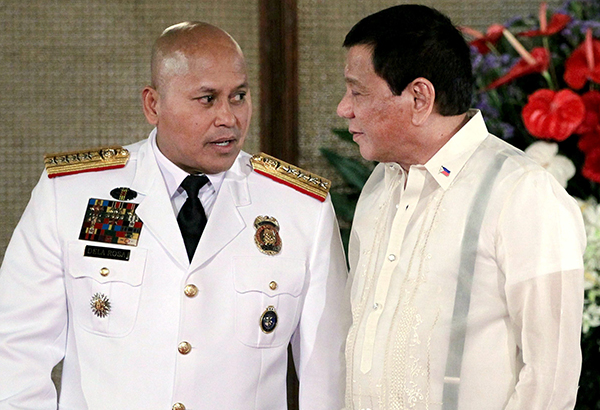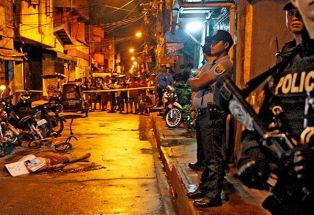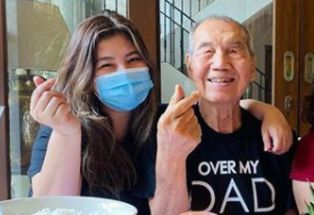Villar: Gov’t representatives lobbying for OPAs in Japan were ‘makapili’
March 28, 2005 | 12:00am
Like modern-day "makapili," Philippine government officials proved to be a letdown for "misrepresenting" the plight of Filipino entertainers before Japan, a senator claimed yesterday.
Sen. Manuel Villar, chairman of the Senate committee on foreign relations, scored the Department of Labor and Employment (DOLE), the Philippine Overseas Employment Administration (POEA) and the Department of Foreign Affairs (DFA) for failing to address the concerns of overseas performing artists on Tokyo’s new anti-trafficking legislation that would drastically reduce the number of Filipino OPAs working in Japan.
"Our labor and foreign affairs were reassuring our OPAs that they are appealing for their cause, but they were doing a different thing altogether in Japan," Villar said in a statement.
"We have to hear their explanation but it seems they misrepresented not only the OPAs, but the entire country," said the lawmaker, who spent the Lenten break in Japan before proceeding to Australia.
Villar said he felt "utter dismay" when he found out for himself in Japan that the DFA and DOLE "sold" the OPAs out like the "makapili," referring to a group of Filipinos who collaborated with imperial Japan and informed on their own countrymen resisting the occupation during World War II.
"I couldn’t believe it at first," Villar said, vowing to delve deeper into the matter.
"We will definitely look into this gross misrepresentation done to our OPAs by our labor and foreign affairs departments. It’s a very serious offense," he stressed.
Villar admitted to having had "doubts" on the efforts of DOLE, DFA, POEA "and even our embassy there" to help alleviate the impact of Japan’s new law on Filipino entertainers.
He said he even filed a resolution in the Senate urging the government to send the highest representation to Japan.
Villar flew to Japan last week together with Manila Rep. Joey Hizon and DFA Undersecretary Jose Brillantes, upon the invitation of OPA groups, namely, the Philippine Association of Mediterranean Agencies Deploying Labours Inc., Philippine Entertainment Exporters and Promoters Association Inc., and the Philippine Association of Recruitment Agencies Deploying Artists Inc.
They met with leaders of Japan’s Liberal Democratic Party led by Koki Kobayashi to discuss the fate of Filipino entertainers with the implementation of the revised immigration law. The meeting’s results were apparently not too encouraging.
Among other stricter regulations, Japan’s new visa rules which took effect last March 15 render the Artist Record Book (ARB), now called Artist Accreditation Certificate (AAC), a nondocument in applying for "entertainment" visa.
Entertainment visas, intended for musicians, dancers and other entertainers, are issued to 80,000 Filipino women each year. But critics call the visas a front for sex trafficking, saying most women who get the visas end up working illegally as strippers, hostesses and prostitutes.
The Philippine government has repeatedly tried but failed to persuade Japan to go easy on the implementation of its revised immigration rules that aim to curb human trafficking. The law is seen to greatly cut the deployment figures of OPAs to Japan, putting at risk the livelihood of millions of Filipinos.
Tokyo was prompted to work on its anti-trafficking legislation after a US State Department report last year listed the Philippines and Japan as among the 42 countries in its Tier 2 Watch List in their Human Trafficking in Persons Report 2004.
Sen. Manuel Villar, chairman of the Senate committee on foreign relations, scored the Department of Labor and Employment (DOLE), the Philippine Overseas Employment Administration (POEA) and the Department of Foreign Affairs (DFA) for failing to address the concerns of overseas performing artists on Tokyo’s new anti-trafficking legislation that would drastically reduce the number of Filipino OPAs working in Japan.
"Our labor and foreign affairs were reassuring our OPAs that they are appealing for their cause, but they were doing a different thing altogether in Japan," Villar said in a statement.
"We have to hear their explanation but it seems they misrepresented not only the OPAs, but the entire country," said the lawmaker, who spent the Lenten break in Japan before proceeding to Australia.
Villar said he felt "utter dismay" when he found out for himself in Japan that the DFA and DOLE "sold" the OPAs out like the "makapili," referring to a group of Filipinos who collaborated with imperial Japan and informed on their own countrymen resisting the occupation during World War II.
"I couldn’t believe it at first," Villar said, vowing to delve deeper into the matter.
"We will definitely look into this gross misrepresentation done to our OPAs by our labor and foreign affairs departments. It’s a very serious offense," he stressed.
Villar admitted to having had "doubts" on the efforts of DOLE, DFA, POEA "and even our embassy there" to help alleviate the impact of Japan’s new law on Filipino entertainers.
He said he even filed a resolution in the Senate urging the government to send the highest representation to Japan.
Villar flew to Japan last week together with Manila Rep. Joey Hizon and DFA Undersecretary Jose Brillantes, upon the invitation of OPA groups, namely, the Philippine Association of Mediterranean Agencies Deploying Labours Inc., Philippine Entertainment Exporters and Promoters Association Inc., and the Philippine Association of Recruitment Agencies Deploying Artists Inc.
They met with leaders of Japan’s Liberal Democratic Party led by Koki Kobayashi to discuss the fate of Filipino entertainers with the implementation of the revised immigration law. The meeting’s results were apparently not too encouraging.
Among other stricter regulations, Japan’s new visa rules which took effect last March 15 render the Artist Record Book (ARB), now called Artist Accreditation Certificate (AAC), a nondocument in applying for "entertainment" visa.
Entertainment visas, intended for musicians, dancers and other entertainers, are issued to 80,000 Filipino women each year. But critics call the visas a front for sex trafficking, saying most women who get the visas end up working illegally as strippers, hostesses and prostitutes.
The Philippine government has repeatedly tried but failed to persuade Japan to go easy on the implementation of its revised immigration rules that aim to curb human trafficking. The law is seen to greatly cut the deployment figures of OPAs to Japan, putting at risk the livelihood of millions of Filipinos.
Tokyo was prompted to work on its anti-trafficking legislation after a US State Department report last year listed the Philippines and Japan as among the 42 countries in its Tier 2 Watch List in their Human Trafficking in Persons Report 2004.
BrandSpace Articles
<
>
- Latest
- Trending
Trending
Latest
Trending
Latest
Recommended





























